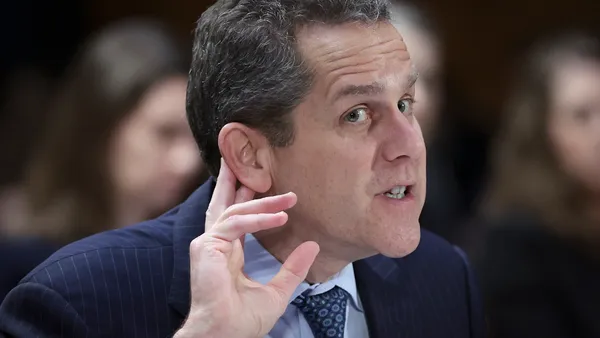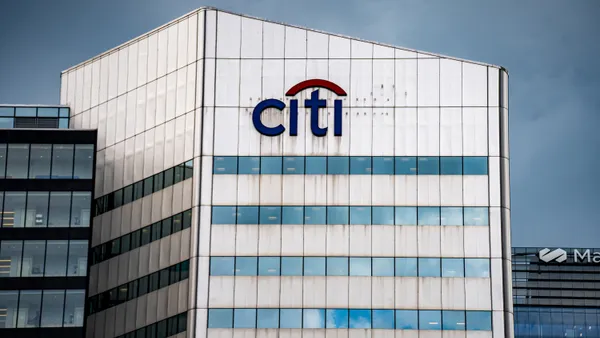The Federal Deposit Insurance Corp. agenda includes a revisited Dodd-Frank requirement and a proposal to check the power of asset managers over the banks they invest in, according to media reports.
The FDIC wants to take another look at an old proposal to restrict Wall Street executives’ pay in the event of losses, sources told Bloomberg and the Wall Street Journal.
FDIC board member Jonathan McKernan and Chairman Martin Gruenberg are also shaping measures that would create new rules for funds that hold more than one-tenth of a bank’s shares, aimed at making sure the asset managers remain “passive” investors, according to the Financial Times.
The incentive-compensation proposal, an outstanding Dodd-Frank Act requirement, which has yet to be ratified, is meant to mitigate risky behavior by requiring bank executives to wait longer for their bonuses. Banks would also be required to provide regulators with more details on pay packages.
The FDIC plans to vote on the proposal within weeks, sources with knowledge of the measure told the outlets.
If it passes an FDIC vote, similar rules will need to be passed by the Office of the Comptroller of the Currency, National Credit Union Administration, Federal Housing Finance Agency, Securities and Exchange Commission and the Federal Reserve.
Similar proposals didn’t pass in 2011 and 2016, the most recent of which would have required that the largest banks defer half of executive bonuses for four years. The same proposal would have allowed regulators to claw back compensation tied to misconduct.
The OCC, NCUA, and FHFA are expected to float similar rules soon, according to the Wall Street Journal.
The SEC, however, isn’t likely to issue a similar proposal soon because it’s currently busy working on a new economic analysis, sources told the Journal.
One regulator that wouldn’t participate in the new measure, according to the Journal, is the Federal Reserve. Chair Jerome Powell has said it would be challenging to get all six federal regulators to agree on rules of the measure when agendas are full ahead of the presidential election, the Journal reported.
Still, a Fed spokesperson told the Journal, “We are committed to continuing to work with the other regulators to develop a joint rule, as required by the law. Any rule should be considered following updated analysis so that it reflects current banking conditions and practices.”
Spokespeople for the FDIC, Fed, OCC and NCUA declined to comment to Bloomberg, and an FHFA spokesperson didn’t return a request for comment.
Regarding asset management influence over banks, large asset managers with more than a 10% stake in a bank are currently required to certify by passivity letter to regulators that they’re not interested in controlling the bank’s management and operations. They can vote, however, on directors and shareholder resolutions.
McKernan, a Republican, told the FT he wants to keep an eye on compliance with those letters by asset managers, with a specific focus on funds that track indices.
“My aim here is to put an end to self-certification,” McKernan told the FT. “My plan is to have a vote at the next [FDIC] board meeting, and I have put that on the proposed agenda. I have [had] good discussions with other members of the board . . . from both parties at high level on the issue.”
Gruenberg, a Democrat, is working on a broader proposal, three people familiar with the matter told the FT.
An FDIC spokesperson declined to comment to the FT. The details of the regulator’s next board meeting are expected to be announced soon.















